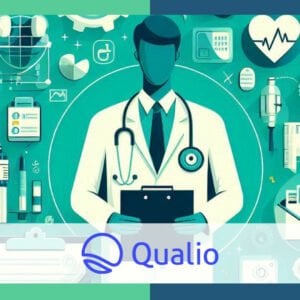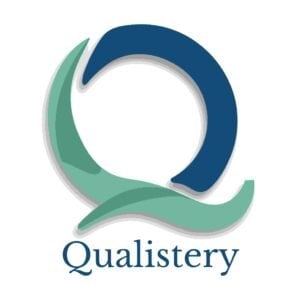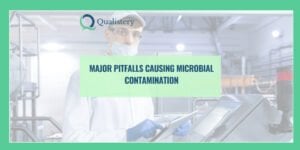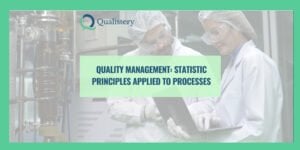The validation process was first introduced in the 1970s in response to a series of incidents caused by a failure in terminal sterilization processes. The inherent limitations of the sterility test technique resulted in the release of non-sterile parenteral products that harmed many patients. As soon as regulators identified the source of the problem, they introduced the concept of “Validation.”
According to the PDA Annual Meeting in 1980, validation is:
“Documented evidence provides a high degree of assurance that a specific process will consistently produce a product meeting its predetermined specifications and quality attributes.”
This concept implies several steps. Being the first one using the scientific method and risk analysis to identify the riskiest parts of a process. Secondly, experiments should be conducted and data gathered. Thirdly, the data should be analyzed, and an experimental report should be written. The experimental report should include a clear conclusion stating whether the process is validated.
The benefits of validation
Validating the manufacturing process in the pharmaceutical industry has several benefits. By validating the process, the likelihood of defects and errors is minimized, which reduces rejections and reworks. This, in turn, leads to less downtime and increases the throughput of the manufacturing process, ultimately resulting in cost savings.
In addition, a validated process allows for reduced testing by making it easier to justify less in-process and finished product testing. This, in turn, leads to less downtime due to release waiting times, resulting in more efficient production. Furthermore, a validated process enables easier scale-up from development work, which is particularly important when bringing a new product to market or expanding production. A validated process also ensures that the manufacturing process is consistent and that the final product is of high quality, leading to increased efficiency and cost savings, ultimately benefiting the company and patient.
Finally, it’s important to note that validation is mandatory for almost any regulatory agency. Therefore, pharmaceutical companies must validate their critical processes to comply with regulations.
Validation specialists challenges
Validation specialists face numerous challenges and require broad knowledge to carry out their responsibilities effectively. The most significant challenges that validation specialists face include the following:
1) Changing regulations:
Regulatory agencies play a crucial role in protecting public health by ensuring that pharmaceutical products are safe, effective, and of high quality. Validation is a critical component of the regulatory process, and agencies closely monitor the validation process. Non-compliance with validation requirements can result in severe consequences, including product recalls, financial penalties, and legal action.
Regulations are continually changing to reflect the latest scientific knowledge of pharmaceutical manufacturing. It can be challenging for validation specialists to keep up with these changes and ensure compliance. Therefore, they need to stay informed about changes in regulations and guidelines. They must also proactively review and update their validation processes to ensure compliance with the latest regulations.
2) Diverse product categories in the pharma and biotech industries:
The pharmaceutical and biotech industries produce many products, including small-molecule drugs, vaccines, and cell therapies, each with different administration routes and dosage forms. Each product category has unique characteristics and requirements, and validation specialists must be knowledgeable about these differences. For example, validation for a parenteral sterile product would significantly differ from a non-sterile product. Sterile products require a more extensive validation process to ensure that the product is free from contamination.
The differences are even greater when the nature of the product is taken into account. The manufacturing process of a small molecule will be substantially different from a biological. Biologics usually require a more extensive validation process to ensure that they are safe and effective…and even among biologics…the wide range of products makes the manufacturing process quite different.
3) Deadlines for prospective validation and unexpected changes requiring revalidation:
Prospective validation is the process of validating a new process or equipment before commercial manufacturing. This process can be time-consuming and can result in delays in the commercialization process. However, it is an essential component of regulatory compliance as it helps to ensure that the process or equipment is reliable and consistently produces the desired results.
Unexpected changes in the manufacturing process or equipment may require revalidation. For example, if the company must change the supplier of a critical raw material (e.g., the provider shuts down), the new raw material may not be of the same quality, and the product could be affected. In these cases, it is recommended to perform a risk analysis to evaluate if revalidation is necessary to ensure that the new process produces the desired results. Similarly, there is a need for revalidation with any modification of the manufacturing process that may affect the quality of the finished product.
Tips and strategies to overcome challenges
To overcome the challenges faced by validation specialists, there are several tips and strategies that they can employ:
1) Validation regulatory challenges:
Validation specialists must stay informed about changes in regulations and guidelines. They must actively monitor regulatory agencies’ publications and announcements to stay up-to-date on the latest requirements. Additionally, validation specialists can attend training courses and conferences to ensure they are familiar with the latest guidelines and best practices. It is crucial to develop a network of contacts within regulatory agencies to gain insights into upcoming changes and seek clarification on any areas of uncertainty. By staying informed, validation specialists can ensure that their validation processes remain compliant with the latest regulatory requirements.
2) Validation guidelines for different product categories:
Validation guidelines have been developed for different product categories, providing a framework for validating different products and ensuring that the validation process is consistent and effective. Validation specialists can refer to these guidelines to ensure that their validation processes are tailored to the specific requirements of each product category. These guidelines can also help validation specialists identify any potential challenges or issues specific to the product category and develop solutions to overcome them.
In addition to using validation guidelines, validation specialists can work closely with the process development and manufacturing teams to ensure the validation process is effective. The input of these teams can be invaluable in the validation process. By collaborating with these teams, validation specialists can better understand the unique characteristics and requirements of each product category. This joint effort is crucial to develop a validation process tailored to each product category’s specific requirements.
3) Joint efforts and good communication:
Validation specialists in the pharmaceutical industry can overcome challenges related to prospective validation and revalidation by working closely with the process development team. They should be involved in any relevant discussions regarding the timeline of changes in the manufacturing process to anticipate the ones that may require prospective validation or revalidation. By being proactive and identifying potential issues early on, validation specialists can minimize the impact of close deadlines.
Furthermore, validation specialists should educate other areas of the company to ensure they understand the validation process’s importance. The personnel from other areas may not have a thorough understanding of the validation process and how modifications in the manufacturing process impact it. This collaboration can help to ensure that any changes to the manufacturing process or equipment are communicated promptly to the validation team, reducing the risk of delays.
Conclusion
Validation is a crucial process in the pharmaceutical industry that guarantees a consistent production of a desired outcome. It is a regulatory requirement that involves a comprehensive evaluation of every step of the manufacturing process, assessing risks, and using the scientific method. Moreover, validation specialists face several challenges, including evolving regulations, diverse product categories, tight deadlines for prospective validation and unexpected changes that require revalidation. By employing the right strategies, validation specialists can overcome these obstacles and guarantee that the validation process is effective.
To manage these challenges, validation specialists must understand the manufacturing process and equipment used. They should also be familiar with different types of validations and be able to work collaboratively with other stakeholders, such as the process development and manufacturing teams and regulators. Strong communication skills are vital since validation specialists must interact with other stakeholders and ensure that everyone involved in the manufacturing process knows the validation requirements and processes. Additionally, validation specialists must have robust problem-solving skills to address unexpected challenges during the process.
By doing so, they can help ensure that pharmaceutical products are safe, effective, and of high quality.
Are you looking to overcome the validation challenges and stay ahead in ensuring product quality, safety, and regulatory compliance? Join our upcoming webinar on Jun 27 and gain valuable insights that will empower you in your role!

With a dedication to serving the pharmaceutical industry, Qualistery specializes in hosting informational webinars that support both professionals within the pharma sector and service providers. Our commitment lies in empowering businesses to maximize their impact through engaging virtual events and strategic webinar solutions. Additionally, Qualistery supports life science companies through private GxP training and compliance services.








